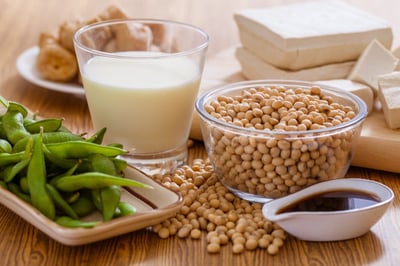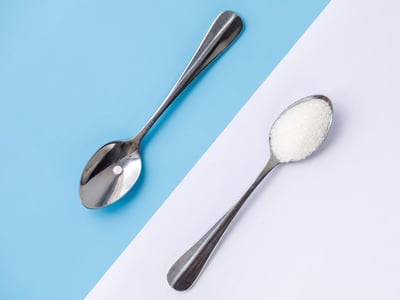FORCE's eXamining the Relevance of Articles for You (XRAY) program looks behind the headlines of cancer news to help you understand what the research means for you.
XRAY is a reliable source of hereditary cancer research-related news and information.
Learn more about the XRAY program
Categories Nutrition & Exercise
Relevance: Medium


Personal Story : Living a full life with Li-Fraumeni syndrome
Relevance: Medium


Most relevant for: People with Li-Fraumeni syndrome
This XRAY review is about a five-time cancer survivor who has an inherited mutation in the TP53 gene. People with inherited mutations in TP53 have Li-Fraumeni syndrome, which is linked to a very high lifetime risk for many types of cancer. Here we share his inspiring story and provide more information on Li-Fraumeni syndrome. (Posted 4/16/24)
Read More
Relevance: Medium


Strength of Science: Medium


Research Timeline: Animal Studies


Study : Weight may affect breast cancer risk in women with an inherited BRCA mutation
Relevance: Medium


Strength of Science: Medium


Research Timeline: Animal Studies


Most relevant for: People with an inherited mutation in BRCA1 or BRCA2 concerned about their breast cancer risk
A study that looked at normal breast cells from women with an inherited BRCA mutation found more DNA damage among women who were overweight (based on a measurement known as body mass index) than those who were not overweight. The results suggest that maintaining a lower weight may reduce breast cancer among this high-risk population. (Posted 3/30/23)
Este artículo está disponible en español.
Read More
Study : Increasing soy in your diet may lower your cancer risk
Most relevant for: People interested in reducing cancer risk
This study looked at a link between a diet rich in soy and cancer risk. With the addition of more recent literature, this study suggests that soy lowers the risk of cancer in the general population. (Posted 2/24/23)
Este artículo está disponible en español.
Read More
Relevance: Medium


Strength of Science: Medium-High


Research Timeline: Post Approval


Study : Frequent aspirin use may reduce the risk of ovarian cancer
Relevance: Medium


Strength of Science: Medium-High


Research Timeline: Post Approval


Most relevant for: Healthy people at high-risk of ovarian cancer.
Aspirin may help lower the risk of ovarian cancer in people who have a high risk of the disease, according to a new analysis of 17 studies. While other preventive strategies have been found to more effectively lower the likelihood of developing ovarian cancer in high-risk women, taking aspirin daily or almost daily may reduce a person’s risk of developing ovarian cancer by 13 percent. The benefit was greater among people with additional risk factors for the disease. (Posted 2/22/23)
Este artículo está disponible en español.
Read More
Relevance: Medium-High


Strength of Science: High


Research Timeline: Post Approval


Guideline : Guidelines on exercise, diet, and weight during cancer treatment
Relevance: Medium-High


Strength of Science: High


Research Timeline: Post Approval


Most relevant for: People currently undergoing treatment for cancer
Most professional guidelines on exercise, diet and weight management have focused on the health of the general population and cancer survivors. The American Society of Clinical Oncology (ASCO) has now published evidence-based recommendations for exercise, diet and weight specifically for people who are in active treatment for cancer. (Posted 11/29/22) Este artículo está disponible en español.
Read More
Relevance: Medium-High


Strength of Science: High


Research Timeline: Post Approval


Study : Resistant starch may help prevent some cancers in people with Lynch syndrome
Relevance: Medium-High


Strength of Science: High


Research Timeline: Post Approval


Most relevant for: People with Lynch syndrome and people with a personal and/or family history that suggests Lynch syndrome
This study looked at whether a type of nutrient known as resistant starch could lower the risk of cancers in people with Lynch Syndrome. Researchers found that resistant starch can reduce the risk of non-colorectal cancers but not colorectal cancer. (Posted 10/17/22)
Este artículo está disponible en español.
Read More
Relevance: Medium-High


Strength of Science: High


Research Timeline: Post Approval


Study : Physical activity may decrease fatigue associated with cancer treatment
Relevance: Medium-High


Strength of Science: High


Research Timeline: Post Approval


Most relevant for: Cancer patients who are experiencing fatigue related to cancer or its treatment.
Many cancer survivors experience fatigue during and after they complete treatment. This study looked at the effect of home-based physical activity on fatigue in cancer survivors. It also looked at whether frequent counseling encouraged people to start and continue their exercise routines. (Posted 8/1/22). Este artículo está disponible en español.
Read More
Relevance: Medium


Strength of Science: Medium


Research Timeline: Post Approval


Study : Do artificial sweeteners increase the risk of cancer?
Relevance: Medium


Strength of Science: Medium


Research Timeline: Post Approval


Most relevant for: People who consume artificial sweeteners
A large study of adults in France suggests that artificial sweeteners may increase the risk of certain cancers. (posted 6/21/2022). Este artículo está disponible en español.
Read More
Relevance: Medium


Strength of Science: Medium-High


Research Timeline: Post Approval


Study : Increasing melatonin use raises concerns
Relevance: Medium


Strength of Science: Medium-High


Research Timeline: Post Approval


Most relevant for: people who take or consider taking melatonin to help with sleep.
Adult use of melatonin as a sleep aid has increased even though its benefits and risks are not well understood. This study looked at trends in melatonin use over the last 19 years. (Posted 4/14/2022)
Este artículo está disponible en español.
Read More
Relevance: High


Strength of Science: Medium-High


Research Timeline: Post Approval


Study : Physical activity may prevent chemotherapy-related cognitive decline in women with breast cancer
Relevance: High


Strength of Science: Medium-High


Research Timeline: Post Approval


Most relevant for: People concerned about the impact of chemotherapy
Many people experience chemo brain or chemo fog (cognitive effects) during and after chemotherapy. Researchers looked at the impact of physical activity on chemotherapy-related decline in memory, attention and information processing in women with breast cancer. This study shows that more physical activity before and during chemotherapy is linked to better information processing after chemotherapy. (Posted 1/6/22)
Este artículo está disponible en español.
Read More